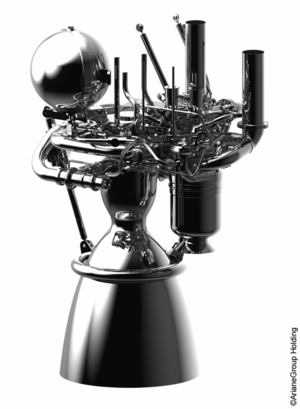Accept all cookies Accept only essential cookies See our Cookie Notice

About ESA
The European Space Agency (ESA) is Europe’s gateway to space. Its mission is to shape the development of Europe’s space capability and ensure that investment in space continues to deliver benefits to the citizens of Europe and the world.
Highlights
ESA - United space in Europe
This is ESA ESA facts Member States & Cooperating States Funding Director General Top management For Member State Delegations European vision European Space Policy ESA & EU Space Councils Responsibility & Sustainability Annual Report Calendar of meetings Corporate newsEstablishments & sites
ESA Headquarters ESA ESTEC ESA ESOC ESA ESRIN ESA EAC ESA ESAC Europe's Spaceport ESA ESEC ESA ECSAT Brussels Office Washington OfficeWorking with ESA
Business with ESA ESA Commercialisation Gateway Law at ESA Careers Cyber resilience at ESA IT at ESA Newsroom Partnerships Merchandising Licence Education Open Space Innovation Platform Integrity and Reporting Administrative Tribunal Health and SafetyMore about ESA
History ESA Historical Archives Exhibitions Publications Art & Culture ESA Merchandise Kids Diversity ESA Brand Centre ESA ChampionsLatest
Space in Member States
Find out more about space activities in our 23 Member States, and understand how ESA works together with their national agencies, institutions and organisations.
Science & Exploration
Exploring our Solar System and unlocking the secrets of the Universe
Go to topicAstronauts
Missions
Juice Euclid Webb Solar Orbiter BepiColombo Gaia ExoMars Cheops Exoplanet missions More missionsActivities
International Space Station Orion service module Gateway Concordia Caves & Pangaea BenefitsLatest
Space Safety
Protecting life and infrastructure on Earth and in orbit
Go to topicAsteroids
Asteroids and Planetary Defence Asteroid danger explained Flyeye telescope: asteroid detection Hera mission: asteroid deflection Near-Earth Object Coordination CentreSpace junk
About space debris Space debris by the numbers Space Environment Report In space refuelling, refurbishing and removingSafety from space
Clean Space ecodesign Zero Debris Technologies Space for Earth Supporting Sustainable DevelopmentLatest
Applications
Using space to benefit citizens and meet future challenges on Earth
Go to topicObserving the Earth
Observing the Earth Future EO Copernicus Meteorology Space for our climate Satellite missionsCommercialisation
ESA Commercialisation Gateway Open Space Innovation Platform Business Incubation ESA Space SolutionsLatest
Enabling & Support
Making space accessible and developing the technologies for the future
Go to topicBuilding missions
Space Engineering and Technology Test centre Laboratories Concurrent Design Facility Preparing for the future Shaping the Future Discovery and Preparation Advanced Concepts TeamSpace transportation
Space Transportation Ariane Vega Space Rider Future space transportation Boost! Europe's Spaceport Launches from Europe's Spaceport from 2012Latest
Smart-1: Story 4- Driving an ion engine in space
This is the last of four programmes on ESA's SMART-1 spacecraft which will fly to the moon following a launch on Ariane 5 on 28 August. The programme investigates the ion propulsion technology that the mission will test in view of its use for Europe's future large deep space mission. Thanks to ion propulsion, light, i.e. energy from the sun can be used to accelerate a spacecraft
This Exchange comprises of a 5 minute A-roll with split audio (English commentary/international sound) and is complimented by a 8-minute B-Roll with clean international sound.
Story 4 - Driving an ion engine in space
OFF 1
TC 10.00.42
As scientists demand more from space missions travelling to other worlds and beyond, traditional rocket technologies are beginning to show limitations.
TC 10.00.51
The solar-powered ion engine used on Smart-1 cannot compete in terms of ñbrute forceî with the whoosh of a chemical rocket but the latter burns for only a few seconds or minutes. An ion engine can go on pushing gently for months or even years - for as long as the Sun shines and the small supply of propellant lasts.
TC 10.01.11
ITV with Giuseppe Racca, project manager for SMART-1
"" People may wonder why we want to go to the Moon with electric propulsion and take one year while with chemical propulsion it's a matter of days.This is true but the real objective of electric propulsion is not a mission to the Moon. In fact if should we make a mission to Mercury with ion propulsion, we would save 2, 3 or 4 years of travelling time compared with chemical propulsion. In addition highl
-
CREDIT
ESA -
LICENCE
ESA Standard Licence
-
Documentary
-
-
-
-
-
-

SNECMA PPS-1350 ion engine will provide SMART-1's pr…
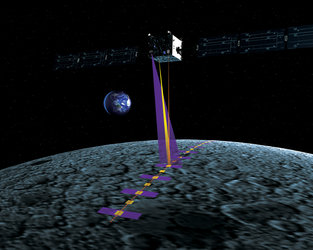
Remote-sensing instruments on SMART-1 scan the Moon'…

SMART-1 is travelling to the Moon using a new solar-…
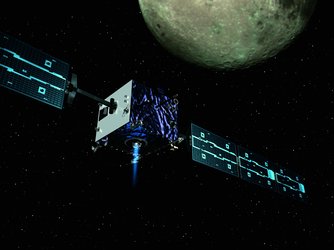
SMART-1 mission at the Moon
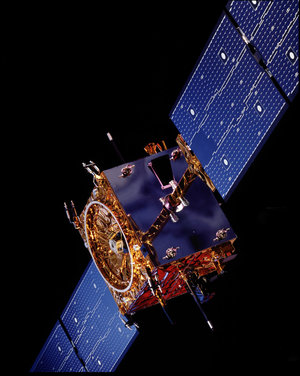







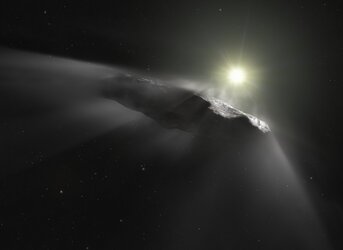






 Germany
Germany
 Austria
Austria
 Belgium
Belgium
 Denmark
Denmark
 Spain
Spain
 Estonia
Estonia
 Finland
Finland
 France
France
 Greece
Greece
 Hungary
Hungary
 Ireland
Ireland
 Italy
Italy
 Luxembourg
Luxembourg
 Norway
Norway
 The Netherlands
The Netherlands
 Poland
Poland
 Portugal
Portugal
 Czechia
Czechia
 Romania
Romania
 United Kingdom
United Kingdom
 Slovenia
Slovenia
 Sweden
Sweden
 Switzerland
Switzerland























